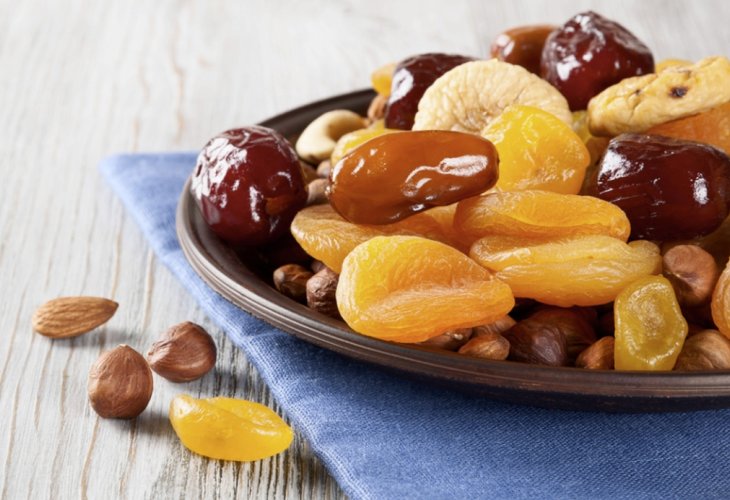Kashrut on Tu BiShvat - How to Ensure There Are No Kashrut Issues with the Fruits You Eat
Learn about important kashrut considerations before enjoying your Tu BiShvat fruits
 (Photo: shutterstock)
(Photo: shutterstock)Sometimes, with all the abundance and blessings overflowing from nut shops, we momentarily forget that Tu BiShvat is indeed a great and awesome day, a day that is the New Year, but actually only for trees, and not for all the imported delicacies from abroad.
In the era we live in, all food is already prepared and ready to eat, and we don't need to work for it at all. Who has recently dealt with separating tithes and faced the question of whether the fruit blossomed before or after Tu BiShvat, and whether the fruit is considered as this year's yield or the previous year's? After all, one needs to know where to allocate the tithes, whether to give to the poor or set aside for oneself to bring up to Jerusalem, may it be rebuilt speedily, and in general - how do we fulfill the instruction of Maran Maor Israel zt"l that the first tithe should indeed be given to the Levites?...
And also, did those who tithe at home as a stringency actually accomplish anything, since perhaps that separation is from the exempt to the obligated. And so as not to sound like those who question and doubt, we'll tell you that it's not uncommon for trucks loaded with fruits and vegetables to leave the wholesale market carrying both produce that definitely requires tithing along with fruits that are already tithed or exempt from separation, and it's too late to know what's tithed and what's not...
To eat dried and processed fruits with the highest standards of kashrut, we'd like to draw your attention to some of the kashrut issues present in these products.
Coating fruits with oil - A large portion of dried fruits, typically those with darker colors such as raisins and even prunes, undergo a glazing process after drying through immersion in oil, done using various methods: Some factories use paraffin oil, which is an oil from an organic compound produced from petroleum. Others use vegetable fat, but without a doubt, in the wider world, many factories use animal fat, so without kosher certification on the product, there's no guarantee that the fruits weren't soaked in forbidden animal fat. Today, there's a preference for two companies from California, America, where there's no concern about animal fats.
Please note - Even when dried fruits have kosher certification and the oil is approved, if you want to preserve large quantities of leftover Tu BiShvat fruits to enjoy during Passover, and the fruits aren't certified kosher for Passover, keep in mind that if you don't eat kitniyot (legumes) on Passover, there may be a concern of kitniyot in the fruits because of the oil.
Interesting to know – The problem also exists in some legumes. For example, red lentils are also soaked in oil to get a shiny, red appearance. True, the main issue with lentils is with whole lentils and not split lentils, which is why many stringent kosher certification agencies refrain from certifying whole red lentils, due to lack of clarity about how and with which oil the lentils were coated - whether with canola oil and the like, or with much cheaper oils mixed with animal fats.
Processed fruits - Pineapple, papaya, strawberries, kiwi, and similar sugared fruits, or dried apple, and essentially all types of fruits served dried or frozen... undergo many transformations to become a product with a long shelf life. For instance, dried apple slices or frozen pear, which naturally turn black immediately after peeling and certainly after being cut into slices - how do they maintain their natural color for days? Is it because of various high-concentration chemicals that don't have kashrut issues apart from being quite unhealthy, as is common in third world countries like China and its peers, or is it because of various natural additives that are the manufacturer's secrets requiring kosher certification on the ingredients? After all, things from animals are also natural...
Remember - It's worth reviewing the laws of insects before Tu BiShvat, as they are prevalent in many of the holiday fruits we eat. For example, raisins require inspection, especially if they've been stored for a while, as is common with brown raisins that develop what look like small dots and grains on their surface, which are actually a type of insect called mites. Remember that black raisins or cherries require soaking in water until they swell and regain their original shape, to clean them of insects trapped in their folds, and one should be especially careful with Israeli produce (American produce from California is considered cleaner). And let's not forget that figs are a fruit not recommended for consumption at all due to the great difficulty in inspecting them, and more...

